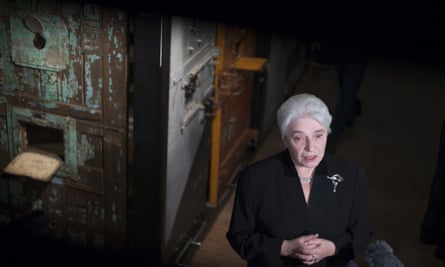Moscow’s award-winning Gulag History Museum announced its surprise closure on Thursday, a move critics attribute to the Kremlin’s efforts to whitewash Russia’s Soviet past.
The closure was officially put down to alleged violations of fire safety regulations but comes amid an intense campaign by Russian officials against independent civil society and those who question the state’s interpretation of history.
Established in 2001, the central museum brings together a vast collection of official state documents with family photographs and objects from gulag victims.
The Council of Europe awarded the site its museum prize in 2021, saying it worked to “expose history and activate memory, with the goal of strengthening the resilience of civil society and its resistance to political repression and violation of human rights today and in the future”.
An estimated 18 million people experienced the brutal gulag-system prison camps from the 1920s to 1953, the year mass political arrests, deportations and executions ended with the death of the dictator Joseph Stalin.
 View image in fullscreen
View image in fullscreen
“The decision to temporarily suspend the activities of the State Gulag Museum was taken for safety reasons,” the Moscow city culture department told local media. The department said the museum could reopen its doors once it complied with safety regulations.
But Kremlin critics worry it is facing permanent closure. Russian authorities have previously cited fire safety concerns as a pretext for shutting down independent-minded cultural institutions including the Documentary Film Center in 2022 and the European University of St Petersburg in 2008.
After the fall of the Soviet Union, Russia went through a brief period when open examination of the country’s troubled history of repression was encouraged and flourished. But under Vladimir Putin’s presidency, the state has sought to reshape historical memory, elevating the Soviet victory in the second world war as a national rallying point while portraying the forced labour camps as an unfortunate but necessary byproduct.
In recent years, the Kremlin has initiated a crackdown on human rights groups that have sought to chronicle the history of the gulag, most notably ordering the closure of Memorial, the country’s oldest human rights group that focuses on the victims of the Great Terror and Stalin’s repressions.
skip past newsletter promotionSign up to Headlines Europe
A digest of the morning's main headlines from the Europe edition emailed direct to you every week day
after newsletter promotion
New history textbooks in Russian schools give minimal attention to the millions of victims of the Great Terror, mentioning them only in passing and omitting any detailed accounts of the brutalities they suffered.
Polls have shown that most Russians now admire Stalin and his legacy. Alongside his rehabilitation, Russia’s invasion of Ukraine has sparked a resurgence of nationalism. Across Russia, statues and exhibits celebrating Stalin’s legacy are emerging, while memorials dedicated to victims of his repression are quietly removed or defaced.
∎